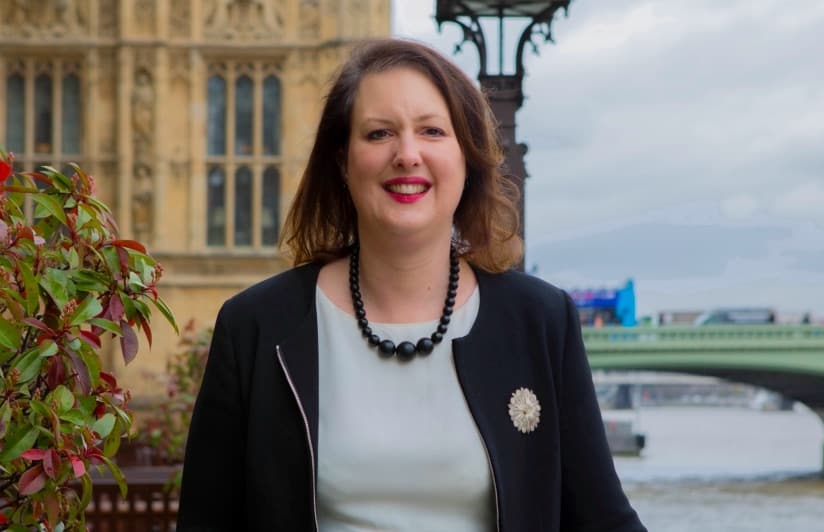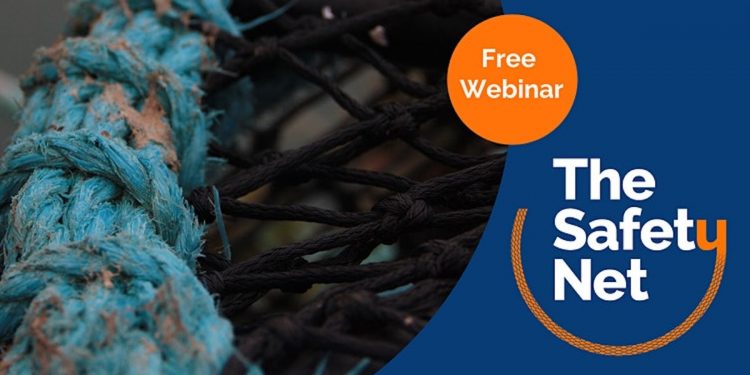Seafarers UK has release landmark research into the plight of fishing communities’ financial health – highlighting the lack of a safety net for those working as share fishermen, and exploring the impacts of a lack of financial planning on fishing families’ financial security and wellbeing.
New research conducted by the charity Seafarers UK, in partnership with Liverpool John Moores University, explores the real financial difficulties inherent for many in earning a living from small- scale fishing.
Fishing without a Safety Net: The Financial Resilience of Small-Scale Coastal Fishers, their Families and Communities puts forward a bold set of recommendations for Government, charity and industry to improve the financial resilience of fishing families around the UK.
Key proposed actions include boosting financial literacy in fishing communities to improve financial planning, improved Government welfare support, plugging crucial gaps in the current system that disadvantages fisher, access to savings and affordable credit from a credit union, support to budget for tax and plan for insurances and a retirement pension.
Uncovering an array of different stressors on coastal fishing people, the report notes that financial troubles were often the root cause of mental health problems and relationship difficulties for fishers living without a financial safety net. This challenging reality has been thrown into stark relief by the events of 2020, a year in which the usual uncertainty of earning a living from inshore fishing was struck by the economically devastating COVID-19 pandemic and the closure of hospitality and export markets to sell fresh fish.
‘Inshore fishermen can, and do, make reasonable profits, but as we have seen from COVID-19, they are amongst the most vulnerable in the sector as they do not have the reserves or flexibilities that are available to others,’commented Fisheries Minister Victoria Prentis in the report’s foreword.
The report’s findings are based on the real financial problems experienced by 431 fishermen and their families who sought for help from maritime welfare charities, such as SAIL (Seafarers’ Advice & Information Line), the Shipwrecked Mariners’ Society, and Seafarers’ Hospital Society, and was augmented by interviews with fishers from around the UK. The data revealed that amongst 140 working fishermen contributing to the study, 63% sought help about debt problems.
‘The problem is not always low wages. Fishermen can earn quite good wages. It is the way people manage their money that is the problem. They don’t seem to be able to plan or save or look after their money. Then they have nothing to fall back on,’ explained one vessel owner interviewed for the report.

So, where do the key vulnerabilities lie that lead to these problems with indebtedness? One central aspect of financial vulnerability explored by the report is the share fishing model. A part of fishing life since medieval times, with fishermen receiving a share of the value of the total catch, rather than a predictable and stable income.
This system is highly prized by many fishermen and rewards skill and effort with well-earned payouts when the fishing is good. Yet, as crucial factors such as the weather, ability to go to sea, and actual catch can’t be predicted, share fishing leaves fishers with little regularity in what they will earn from one week to the next. This presents challenges to pension planning, affording time away from work when ill, and accessing welfare benefits when needed.
As a result of this new analysis of the impacts of the share fishing model favoured by many small-scale fishers, Seafarers UK are now proposing a new ‘share fisher plus’ co-operative approach which could support fishers to access to a range of suitable, and competitively priced, financial products.
‘Seafarers UK is now actively exploring how to take forward the development of a co-operative owned by fishers which can facilitate group-purchasing of financial products, as well as potentially providing access to accountancy, taxation and HR support,’ remarked Seafarers UK CEO Catherine Spencer.
Such innovations to support financial planning are proposed within the report to help provide a buffer against examples of serious financial strife that fishing families often face. Examples of these include problems with debt and bailiffs, homelessness, an inability to retire as lacking a pension and more. All of which are highlighted in the report’s case studies.

With examples like these common amongst those contacting maritime welfare charities, Seafarers UK is challenging Government with six specific recommendations to render making a living as an inshore fisher more stable and better protected against financial insecurity. This includes a recommendation for HMRC to support fishers in making Income Tax and National Insurance payments, aiming to ensure that fishers aren’t caught out by the financial shock of a large, one-off bill – but instead are supported to budget, in a similar way to PAYE employees.
‘At Seafarers UK we are committed to funding interventions that will strengthen the financial resilience of fishing families and help to ensure that there is a safety net to protect them from their current volatile existence,’ Catherine Spencer said.
Other recommendations to Government include a national action plan to specifically support the small-scale fleet, dedicated support for new entrants, and support for direct to consumer marketing initiatives to ensure a fair price for fish.
Seafarers UK will launch this report at a free, open-to-all digital event on the 8th October 2020 from 10am – 12pm. In addition to an address from Fisheries Minister Victoria Prentis, Seafarers UK will outline how they will be taking forward the report’s recommendations and participants will have the opportunity to ask questions to an experienced panel of guests.
Register here for the event.










